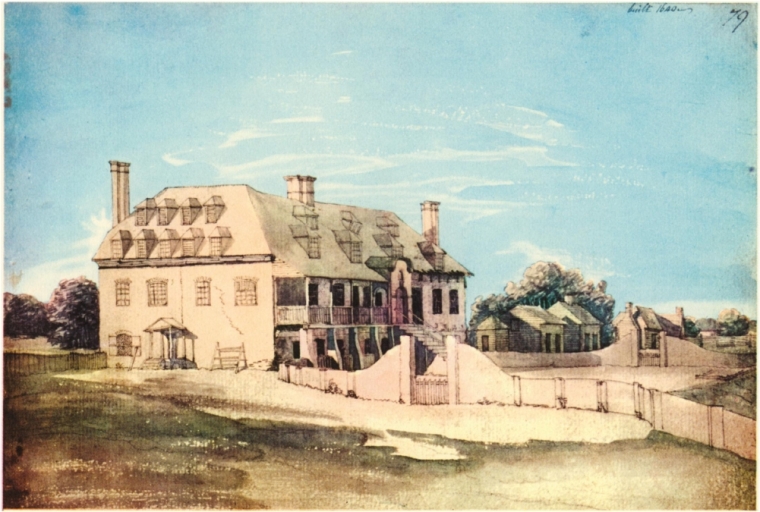The English Civil war claimed victims in Virginia, and the most prominent casualty was William Berkeley.
Berkeley’s first administration has been painted as rather successful, and for good reason. He had made peace with the Powhatan Confederation, increased trade with other colonies, as well as other countries, such as the Dutch, and he greatly aided in solidifying Virginia’s colonial government. For at least these major reasons Berkeley earned high praise from his Virginian constituents. But though high praise often followed Berkeley, there were still those who fell afoul of the Governor.
Much opposition accounts also had what seemed to be valid issues. The most prominent of those issues centered around religious freedom. Berkeley was a staunch Royalist, who supported the Anglican Church, but his increasingly powerful opponents were Puritans that sided with the Parliamentarian cause. That being the case, when King Charles I lost his head in 1649 the English government had to address their Royalist supporting Virginia governor.
The Mathews-Claiborne faction moved to spearhead Parliament’s response. Religious freedom certainly influenced their cause, but Berkeley’s decision to spurn the Navigation Acts which forbade Virginia to trade with anyone other than the English fueled the faction’s fire. In the end, Berkeley could not withstand his enemies combined weight, nor would Berkeley lead the colony into a bloody war. He submitted, to a point, and retired to his Green Spring Plantation, a subject of Cromwell’s England with powerful Royalist connections.
LINKS TO THE PODCAST:
- Governor Berkeley Is Undone on Libsyn
- RSS Feed
- VA History Podcast on iTunes
- VA History Podcast on Podbay
- VA History Podcast on Spotify
- VA History Podcast on Stitcher
- VA History Podcast Store

SOURCES:
- Billings, Warren M.; Selby, John E.; and Tate, Thad W. Colonial Virginia: A History. White Plains, NY: KTO Press. 1986.
- Billings, Warren M. Sir William Berkeley and the Forging of Colonial Virginia. Baton Rouge, LA: LSU Press, 2004.
- Billings, Warren. A Little Parliament: The Virginia General Assembly in the Seventeenth Century. Richmond, VA: Library of Virginia, 2004.
- Craven, Wesley Frank. White, Red, and Black: The Seventeenth Century Virginian. Charlottesville, VA: University of Virginia Press, 1977.
- Craven, Wesley Frank. The Southern Colonies in the Seventeenth Century: 1607-1689. LSU Press, 1949.
- Dabney, Virginius. Virginia: The New Dominion, A History from 1607 to the Present. Charlottesville, VA: University of Virginia Press, 1971.
- Horn, James. Adapting to A New World: English Society in the Seventeenth-Century Chesapeake. Chapel Hill, NC: University of North Carolina Press, 1994.
- Mapp, Alfred J. Virginia Experiment: The Old Dominion’s Role in the Making of America, 1607-1781. Lincoln, NE: iUniverse, Inc., 2006.
- Neill, Edward D. Virginia Carolorum: The Colony under the Rule of Charles The First and Second, A.D. 1625-A.D. 1685. Albany, NY: Joel Munsell’s and Sons, 1886.
- Rothbard, Murray N. Conceived in Liberty. Auburn, AL: Ludwig Von Mises Institute, 1999.
- Tyler, Lyon Gardiner. The Cradle of the Republic: Jamestown and the James River. Richmond, VA: The Hermitage Press, 1906.
- Wallenstein, Peter. Cradle of America: Four Centuries of Virginia History. Lawrence, KS: University Press of Kansas, 2007.
- Walsh, Lorena S. Motives of Honor, Pleasure, and Profit: Plantation Management in the Colonial Chesapeake, 1607-1763. Chapel Hill, NC: University of North Carolina Press, 2010.
- Washburn, Wilcomb E. Virginia Under Charles I and Cromwell 1625-1660. Kindle Edition.
- Wertenbaker, Thomas Jefferson. Virginia Under the Stuarts: 1607-1688. New York: Russell and Russell, 1959.
- Wertenbaker, Thomas Jefferson. The Planters of Colonial Virginia. Kindle Edition.
BONUS LINKS:
- The Friends of Historic Green Spring
- Lee Family Digital Archive – Green Spring Plantation by Louis R. Caywood.

All photography used on this site is owned and copyrighted by the author unless otherwise noted. The featured image is Governor Berkeley’s addressing the Virginia Assembly regarding the new Parliamentary government following the English Civil War.
Music used for this episode – Louis Armstrong and the Mills Brothers,”Carry Me Back to Old Virginia” available on iTunes, and “Facade” by Sons of the East, also available on iTunes.

